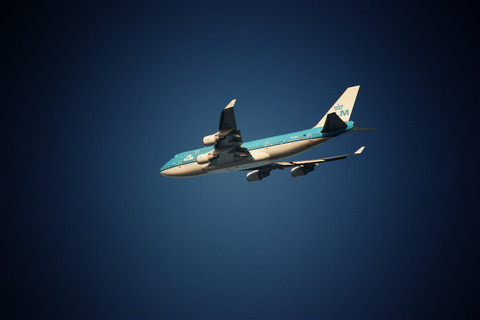[ad_1]

Russia has banned Austrian and French flights amid disarray in European skies after the Belarus hijacking.
Austrian Airlines and Air France cancelled flights to Moscow on Wednesday and Thursday (27 May) after Russia denied them permission to divert around Belarus, in line with new EU sanctions.
It did so because “politicisation” of flight routes was “unacceptable and would be dangerous in terms of aviation safety”, Russia’s ambassador in Vienna, Dmitry Lyubinsky, said on Facebook.
The EU was wrong to have accused Belarus of “air-piracy” before any investigation had taken place, he added.
“The speedy, fully-fledged normalisation of the air-traffic regime between Russia and Austria is in our common interests,” he also said.
But that would be handled bilaterally and Russia would not bow to “political pressure,” he added.
“[Russian president Vladimir] Putin shows full solidarity with [Belarusian president Alexander] Lukashenko. EU airlines avoiding Belarusian airspace are now banned from entering Russian airspace,” Norbert Röttgen, a senior German MP, said on Russia’s decision.
“If you still had doubts whether Putin at least tolerates Lukashenko’s state terror, this is your answer,” he said.
But Russia’s Belarus-diversion ban has been selective because British Airways and Dutch carrier KLM were allowed to do it.
“It’s an attempt to split European unity by applying pressure to individual airlines,” an EU diplomat said.
“Air France probably has a lot of overflights via Russia to Asia, so Moscow is counting on the French getting scared and giving into its blackmail,” he added.
EU leaders called for the Belarus air-ban on Monday after a Belarus warplane forced down a Ryanair jet to seize a political activist.
EU-based airlines have been “recommended” to avoid Belarus airspace by the European Aviation Safety Agency, an EU regulator in Germany.
EU officials are also drawing up a legally binding ban on banning Belarusian planes from EU air-space.
Some EU countries have already notified Eurocontrol, an international body handling European air-traffic, that Belarusian planes are not welcome, but EU institutions do not know which ones.
Some non-EU carriers, such as Singapore Airlines and Japan’s ANA, have also stopped flying over Belarus.
And all that added up to disarray in European skies, where some 400 civilian planes used to fly over Belarus every day, some 100 of which were operated by EU or UK airlines, according to Eurocontrol data.
The hijacking also has the potential to cause long-term disruption.
The UN’s International Civil Aviation Organisation (ICAO) in Montreal, Canada, has the power to expel Belarus, grounding its planes for good.
“These unacceptable actions were an attack on European aviation security and put in danger the lives of the passengers and crew as they traveled between two EU capitals,” Irish transport minister Eamon Ryan told an emergency ICAO meeting on Thursday.
“If ICAO reacts in a soft way this could encourage other autocrats in the world, and there are many of them, to ignore and disregard the international community,” Elmar Giemulla, an aviation lawyer told British newspaper The Guardian.
“If this spreads all over the place, we can forget international aviation,” he said.
The EU is also planning its first-ever economic sanctions on Belarus, foreign ministers said at informal talks in Lisbon on Thursday.
These are to hit Belarusian exports of fertiliser and oil products to Europe, which are worth some €2bn a year, compared to the €85m or so which Belarus gets from overflight fees.
They will also hit Belarusian banks, German foreign minister Heiko Maas said.
“We are talking about … to what extent Belarus should be allowed in future to issue bonds, by the state or the central bank, in Europe,” he said.
If Lukashenko did not release the activist he snatched off the Ryanair jet, as well as other prisoners, “this will be only the beginning of a big and long spiral of sanctions,” Maas said.
But for his part, Lukashenko accused the activist of plotting “bloody revolution” and said the West was waging “hybrid war” on Belarus.
He is to meet Putin in Sochi on Russia’s Black Sea coast on Friday.
And if he looked isolated on the world stage, he also had another friend in the Black Sea region, it emerged, after Turkish president Recep Tayyip Erdoğan watered down a Nato statement on Belarus earlier this week.
A draft Nato communiqué had called for sanctions, including Belarus’ expulsion from a Nato cooperation project, and urged the activist’s release.
But Turkey vetoed all that, according to two diplomats who spoke to the Reuters new agency on Thursday.
And the final Nato statement was more dovish.
[ad_2]
Source link